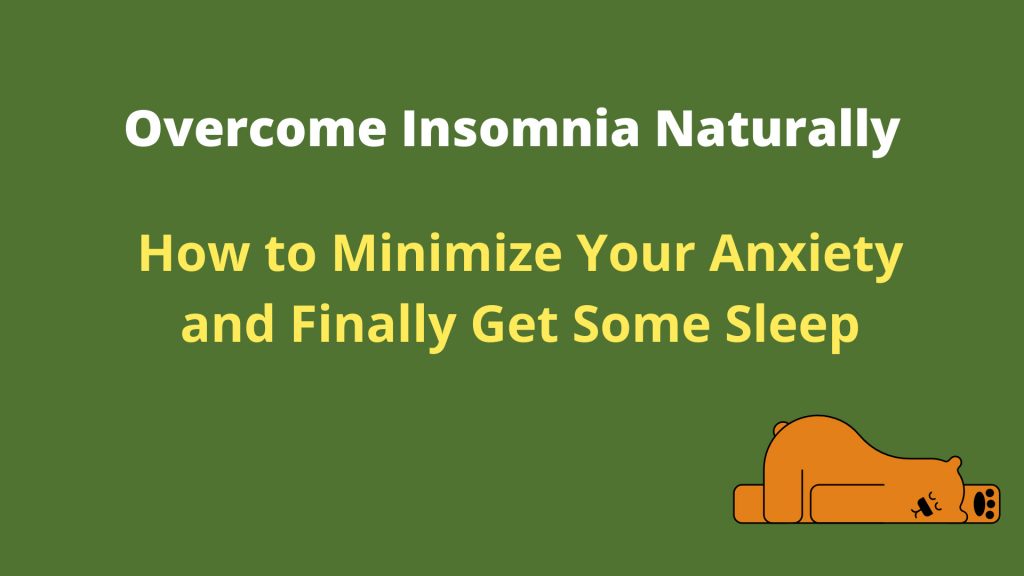The relationship between anxiety and insomnia
Not being able to sleep when you know your body is exhausted is an awful feeling. It’s something that most people have experienced at least once, but for some people this happens far too often. One of the major causes of insomnia is anxiety, and the relationship between anxiety and insomnia can be a brutal cycle.
Insomnia/Anxiety Cycle
Anxiety makes it impossible to fall asleep and stay asleep, but sleep deprivation makes anxiety worse. It’s upsetting, it’s stressful, and on top of it all, you’re absolutely exhausted all the time. Not to mention, long term sleep deprivation puts you at a higher risk for many health conditions including high blood pressure, diabetes, and heart disease. It weakens your immune system, decreases your daily performance and ability to think and function effectively, and makes you far more likely to get into an accident if you drive a car.
Anxiety is the feeling of worry, fear, or apprehension in response to stressful or unknown circumstances in our lives. Anxiety can be short-term and brought on by a specific situation. However, if your anxiety lasts longer than six months or is so severe that it’s making it hard for you to function properly in your everyday life, it’s likely that you have an anxiety disorder. Whether your anxiety is temporary or chronic, it often leads to insomnia.

Symptoms of Insomnia
According to the Mayo Clinic, common symptoms of insomnia include:
- Trouble falling asleep
- Inability to stay asleep or sleep through the night
- Waking up too early
- Waking up not feeling rested
- Feeling tired throughout the day
Causes of insomnia
The most common causes of difficulty falling asleep or staying asleep are anxiety, stress, and depression. Other causes include an unhealthy diet or lifestyle, bad sleep habits, or pain.
Natural insomnia relief
For most people, the best way to get insomnia under control is to learn how to manage their anxiety and stress. Healthy habits such as daily exercise, a proper diet, and practicing mindfulness can all help with anxiety and insomnia. Good sleep habits like doing a calming activity before bed, keeping a regular schedule, and limiting substances like alcohol, nicotine, and caffeine can all help with insomnia and anxiety as well. If you are struggling with insomnia and it’s negatively affecting your daily life, you should consider speaking with a holistic counselor.
Natural insomnia relief with Dr. Gary Gruber
If you’re struggling with insomnia and need help getting your control over your sleep and your life, contact Dr. Gary Gruber.
Dr. Gary Gruber is a licensed naturopathic practitioner and holistic health counselor. He owns Family and Environmental Medicine where he specializes in helping his patients find natural solutions for insomnia caused by stress and anxiety. Family and Environmental Medicine is in the heart of Fairfield County, Connecticut near downtown New Canaan CT. His office is only 10 minutes from Stamford CT and Darien CT, 20 minutes from Greenwich CT, and less than an hour from New York City by train.
